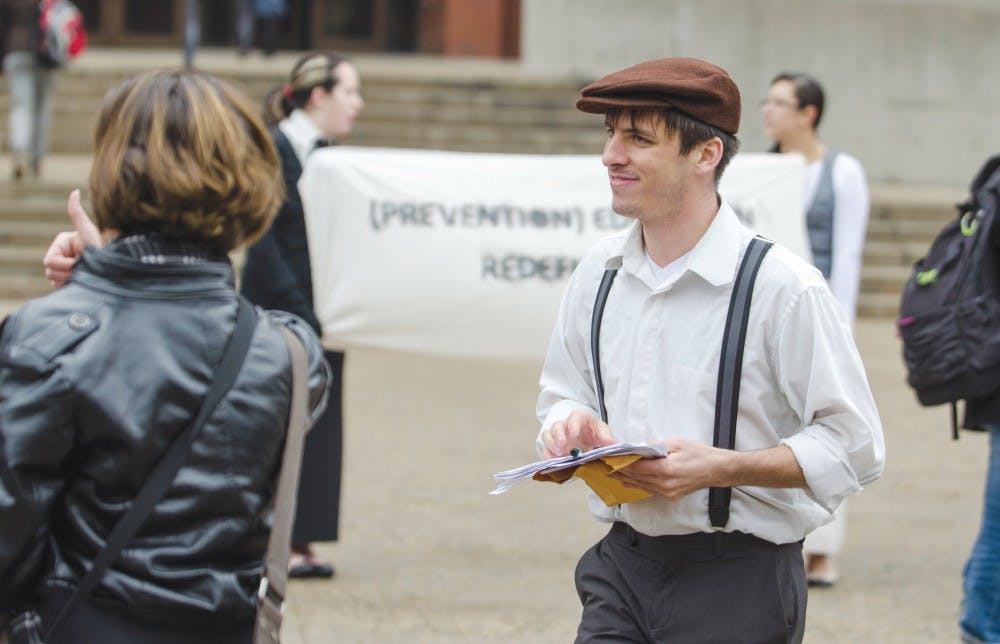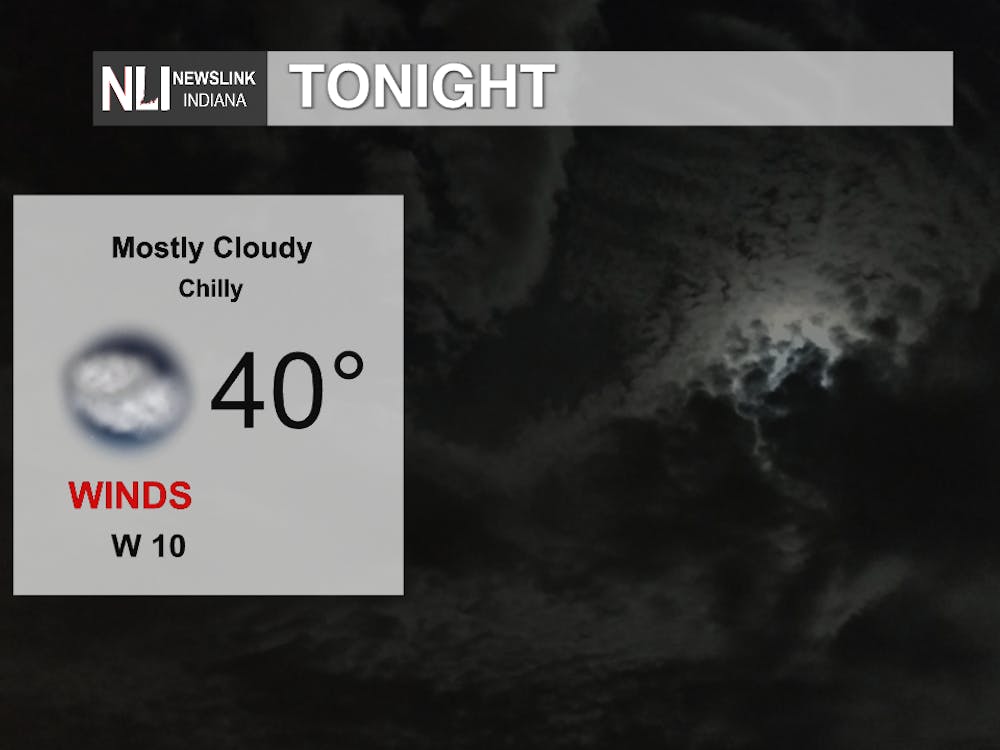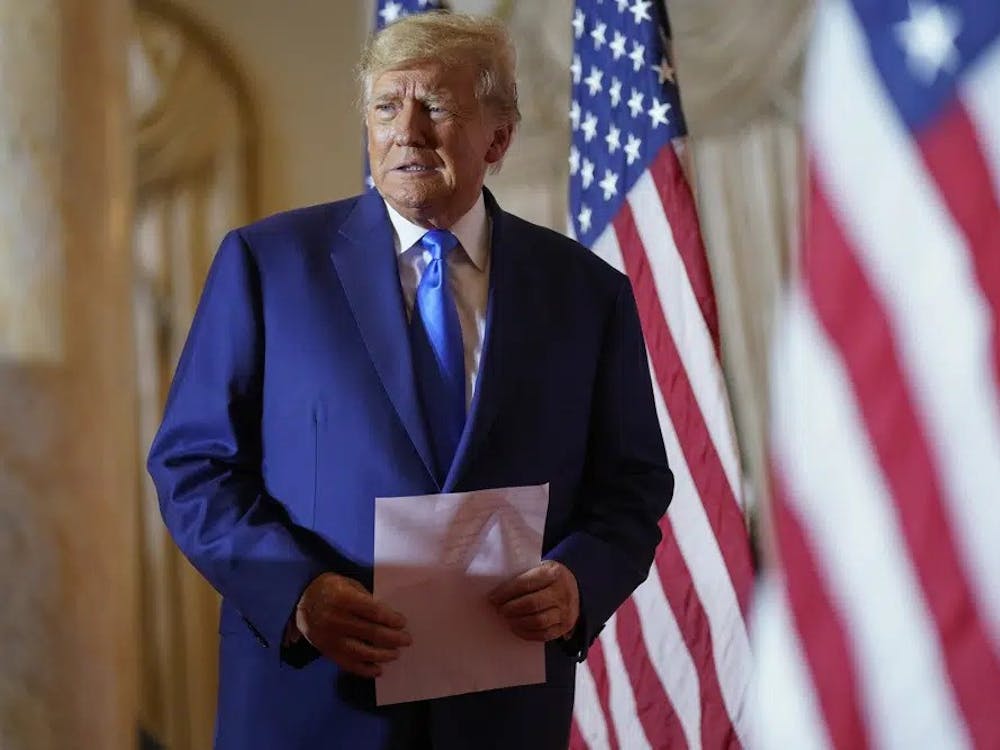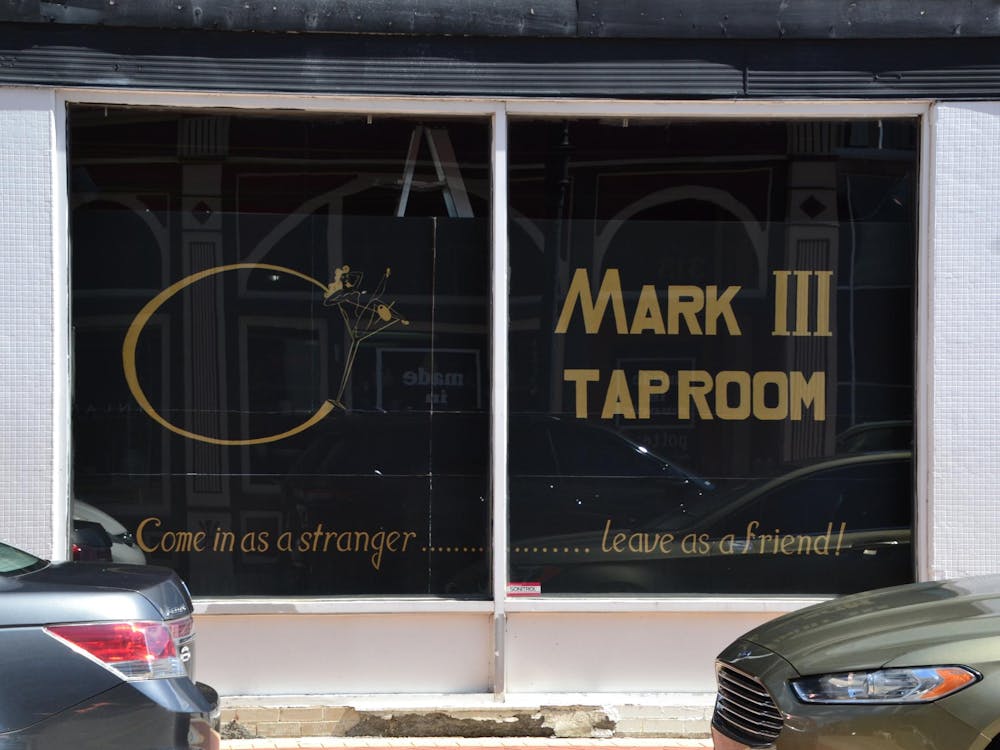By the numbers:
11 sexual assaults
occurred on campus in 2012
6 sexual assaults
occurred on campus in 2010
1 in 5 women
have experienced rape or an attempted sexual assault
1 in 71 men
have experienced rape or an attempted sexual assault
Source: National Clery Act and Centers for Disease Control and Prevention
• Amnesty International, a sexual assault awareness group, hosted a demonstration on Wednesday.
• The participants dressed up in early 1900s clothing and gave adapted speeches from the woman’s suffrage movement.
• The point of the protest was to ask administration for more resources to prevent sexual assault.
A Ball State group chose an older approach to raising awareness of sexual assault, dressed in early 1900s clothing giving adapted speeches from the women’s suffrage movement.
The Amnesty International chapter hosted a demonstration Wednesday to encourage the administration to give students more resources to deal with sexual assault and violence.
Since 2010, the number of sexual assaults on campus has risen from six to 11 in 2012, according to the National Clery Act. Nationwide, one in five women and one in 71 men have experienced rape or an attempted rape, according to the Centers for Disease Control and Prevention.
Ball State currently has multiple resources to deal with sexual assault, including a victim advocate on hand to help those who have been sexually assaulted.
The Office of Health, Alcohol and Drug Education and the Office of Victim Services is also available to give information to students about sexual assault during the “Red Zone,” the first six weeks of school when sexual assaults are most likely to occur.
“Ball State is doing a lot of good stuff, but we just want to draw attention to not only the good stuff they are doing, but also what we can do to make it better,” Natalie Abell, co-director of the chapter, said.
Amnesty International chose to base their demonstration on the women’s suffrage movement, wearing long dresses, hats and suspenders and giving speeches adapted from the movement to fit the cause of sexual assault. Matthew Smith, co-director of Amnesty International, said it’s symbolic because the historic movement’s 100th anniversary was this year.
“We’re harkening back to the early revolutionary movement, early in the century, and developing some of those same themes when we are talking about liberation from sexual assault and the fear of sexual violence for women, as well as men,” he said.
Smith felt the demonstration idea was effective, but some students like Andrew Riley, a sophomore chemistry major, felt basing it on the suffrage made the issue more biased based on gender.
“I feel like both sides have an issue and if we fix the issue for one side, the other side is still going to have the issue,” Riley said. “Why not just teach everybody to not sexually assault other people or give everybody equality? Kill two birds with one stone.”
Smith said the group tried to draw men in as well by having speeches by prominent men like Jackson Katz and Frederick Douglass in addition to Susan B. Anthony and Elizabeth Cady Stanton.
Riley was originally drawn into the event because of the signs Amnesty International had around campus. He said it was more “gender neutral” than he anticipated from seeing the signs.
Bianca Russelburg, the social media coordinator for Amnesty International, was so interested in participating in the protest because of how non-divisive the issue was.
“It’s nonpartisan,” Russelburg said. “No one wants to get sexually assaulted on campus. It doesn’t deal with politics. It’s just a matter of community, and I really like that.”
During the protest, people had the opportunity to sign a petition to encourage the university to expand the sexual assault programs. The signatures will be sent to the university along with a list of suggestions, collected via an anonymous online form.
Russelburg said the ideas mainly revolve around education on the issue and support the ideas the group had as a whole. Smith said one specific thing Amnesty International would like to see is more education on bystander intervention.
David Merten, a sophomore acting major, saw part of the demonstration and thought it was an effective way of raising awareness for the issue.
“I think it’s great that people our age are focusing on these issues because we’re the people on this campus,” Merten said. “We’re the ones being affected by this sort of material and these crimes are on our campus affecting us. I think it’s nice the student voice is finally being heard and hopefully the university will hear the students’ voice more than they ever have.”





